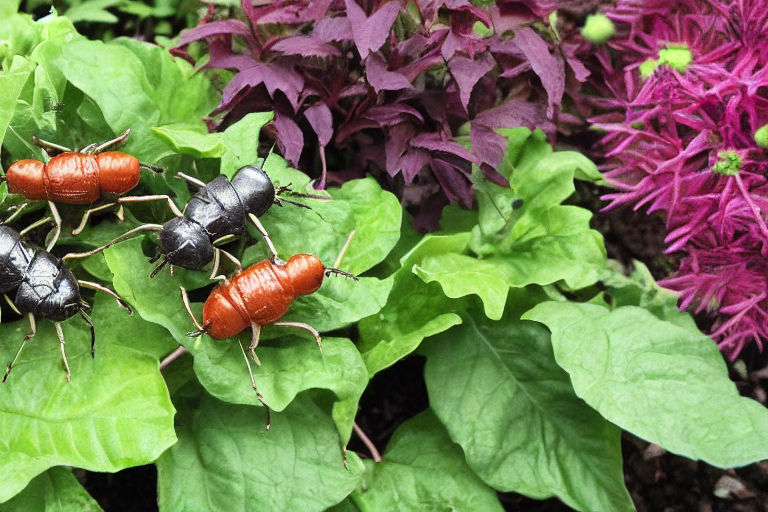Companion Planting 101: Learn How to Naturally Deter Garden Pests
Are you tired of having your hard-earned vegetables devoured by pests? Have you tried using pesticides, only to find that they are harmful to both the environment and your health? There is a natural solution that can help you prevent garden pests. It’s called companion planting.
Companion planting involves planting different crops in close proximity, in a way that they can benefit each other. Some plants, when grown together, can repel pests, while others can attract beneficial insects. Here are some tips that will help you understand companion planting better.
What is Companion Planting?
Companion planting is the practice of planting two or more different crops in close proximity to obtain benefits such as improved pest management, pollination, and increased yields. The plants are chosen based on the benefits they bring to each other and their ability to protect each other from pests and diseases.
How Does Companion Planting Work?
Companion planting works in a variety of ways. One way is by masking the scent of the target crop to make it less attractive to pests. For example, planting onions with carrots can prevent the carrot fly from identifying the carrots. The onion scent will mask the smell of the carrot and deter the carrot fly.
Another way companion planting works is by attracting beneficial insects that prey on garden pests. For example, planting marigolds with tomatoes can attract ladybugs, which feed on aphids, thus helping to reduce aphid infestation on the tomato plant.
Which Plants Work Best Together for Pest Control?
Here are some of the best plants to consider for companion planting for natural pest control:
-
Nasturtiums – Nasturtiums are a great plant to have in your garden. Not only are they beautiful, but their peppery scent can help repel whiteflies, squash bugs, and aphids.
-
Marigolds – As mentioned before, marigolds attract ladybugs, which are great at controlling aphids. Additionally, marigolds help repel beetles, nematodes, and squash bugs.
-
Basil – Basil is an excellent companion plant for tomato plants, as it can repel hornworms, whiteflies, and aphids.
-
Garlic – Garlic is known to repel most pests, including spider mites, aphids, and cabbage loopers.
-
Lavender – Lavender is an excellent companion for most plants, as its scent can help keep pests away, including moths and aphids.
Tips for Successful Companion Planting
Here are some tips to help you be successful with companion planting:
-
Research the plants you plan to grow to ensure they are compatible.
-
Make sure you plant the companion plants close enough to each other to be effective.
-
Don’t overcrowd your garden. Give your plants enough space to grow adequately.
-
Rotate your crops each year to help prevent pests and diseases.
By following these tips, you can quickly learn how to implement companion planting in your garden and protect your crops from pests, without using any harmful pesticides.
In conclusion, incorporating companion planting into your gardening can be an effective way to control pests naturally. Give it a try, and see how it works for you!



